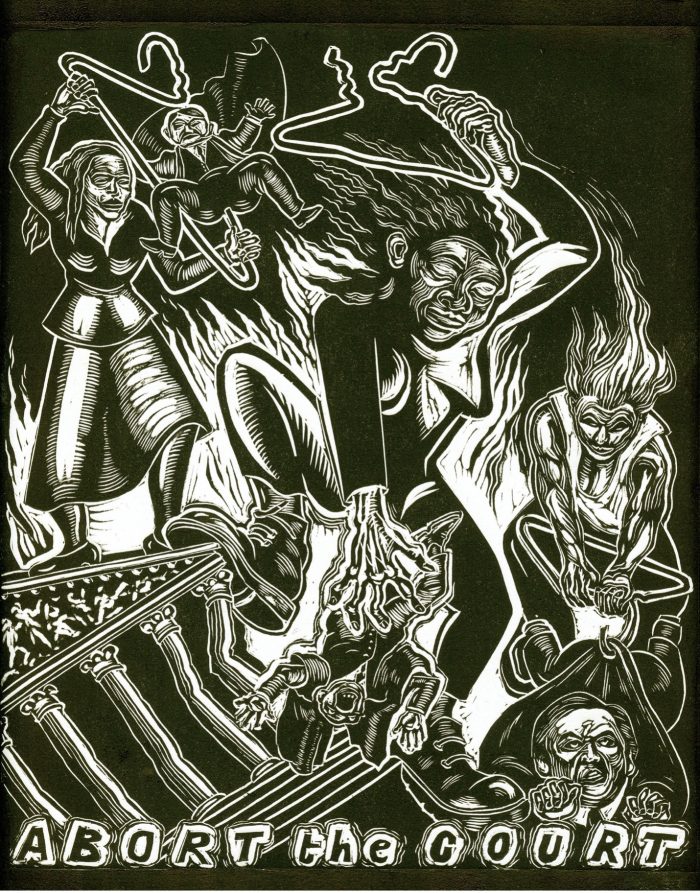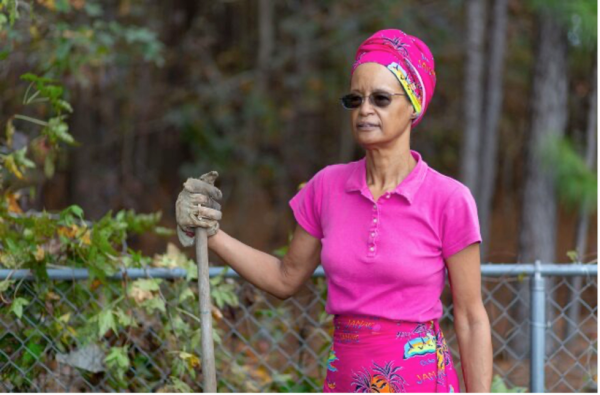
The decision last Friday by the U.S. Supreme Court to reverse Roe v. Wade is a serious setback for human rights and the rule of law. Combined with the Court’s overturning on Thursday of New York City’s 100-year-old handgun ordinance, and its earlier rulings undermining Miranda rights and secular education, it’s clear that a partisan court, untethered from history and legal precedent, has chosen to wage war against both justice and democracy. These are the kinds of rulings that occur in courts in “illiberal” states like Hungary and Poland, or formerly fascist ones. Proposed legislation in Missouri, Texas, and Louisiana, intended to impose long prison sentence on abortion providers, and even to punish friends and family who help women obtain out-of-state abortions, harken back to similar laws in Nazi Germany.
In 1943, already stringent laws forbidding abortion—except when one partner was “of impure blood”—were strengthened: “A woman who kills her fetus or permits such a killing by another will be punished by a prison sentence…. Whoever else kills the fetus of a pregnant woman will be also punished by prison. If the perpetrator… continuously impairs the vitality of the German Volk, the death penalty can be imposed.” Laws already on the books in Louisiana, Texas, Indiana, Arkansas, Oklahoma, and Tennessee would, under certain circumstances, allow abortion providers to be charged with murder. All those states have death penalties.
The stakes in that case are nothing less than civilizational.
And there is more. This week, the Court is likely to hand down a ruling restricting the EPA and other federal agencies from regulating the release into the atmosphere of CO2, methane and other global greenhouse gases and pollutants. The stakes in that case are nothing less than civilizational. The U.S. is by far the leading, per capita emitter of global warming gases (twice the rate of China). Unless we halt their release, and further regulate energy and industrial production, we haven’t a chance of limiting global temperature rise to 1.5°C or even 2.0°C. The consequences of a heat increase beyond that already high threshold are catastrophic, according to the most recent IPCC reports. Indeed, A2 is already working with communities that have experienced climate catastrophe.
The ruling overturning Roe means that women in more than ½ U.S. states will now no longer have full, bodily autonomy. Louisiana, Mississippi, Georgia and Texas, where we have numerous A2 members, have already passed draconian restrictions. In all four states, anti-abortion laws are accompanied by the collapse of public health systems. In each, maternal mortality rates are significantly higher than the national average; in Texas, twice as high; in Louisiana almost four times. There is a racial disparity as well. In Georgia and Mississippi, Black women are twice as likely to die in pregnancy as white women. With this abortion ruling, many more will die.
—without personal and political rights, the fight for climate and environmental justice is impossible; without a livable environment, the struggle for social and reproductive justice is hollow.
Anthropocene Alliance is not directly engaged in the struggle for reproductive rights or women’s health. But we are a U.S. organization with just as many rights and opportunities to speak out—at least, for now—as any other corporation or non-profit. We will continue to use our voice and our strength to protest and challenge these violations of justice, personal rights, democratic liberties, and environmental safety. They exist in tandem—without personal and political rights, the fight for climate and environmental justice is impossible; without a livable environment, the struggle for social and reproductive justice is hollow.
As always, please share with us ideas about how we can be more effective in the work we do, how we can forge stronger alliances with other non-profits with whom we share goals, and how we can better support our members, staff, partners, and friends. Now more than ever, organization, collaboration, solidarity and action are demanded.
Newsletter Sign Up
Don’t miss any of our newsletters!

